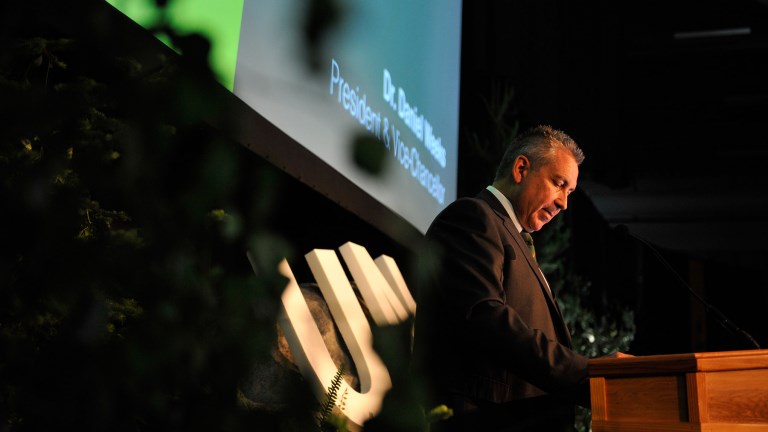The president of the University of Northern British Columbia (UNBC) could face a non-confidence vote in the Senate if a motion tabled yesterday's meeting (Jan. 22) is successful.
Dr. Peter Jackson, a teacher at UNBC, presented a motion Wednesday for a non-confidence vote against Dr. Daniel Weeks, the university confirms.
In a statement, UNBC issued a response that says it's strictly procedural.
"We’re not going to get into this topic before it is discussed by Senate," an email reads.
The notice will now go to the Senate Steering Committee for consideration at the next formal Senate meeting, which is currently scheduled for Feb. 26.
The meeting's agenda is expected to be published Feb. 21.
President Weeks and the Prince George post-secondary school were engulfed in heated contract negotiations with the UNBC Faculty Association (UNBCFA) after a strike started on Nov. 7 after no collective agreement was reached.
Labour Minister Harry Bains appointed a special mediator to the strike on Nov. 26 after no movement between the two sides.
Pickets line came down on Nov. 29 so students could continue studies and finish the fall semester which faculty still maintaining strike action, only performing teaching related-duties.
The UNBCFA had filed a complaint with the Labour Relations Board that the university was guilty of bad faith bargaining.
But, on Dec. 17, the faculty association said their strike action "ceases immediately" after both sides accepted the special mediator's recommendations.
A tweet on the UNBCFA's account said the dispute over salaries would go to binding final-offer-selection arbitration.
"In short, he recommended a compromise on the outstanding non-salary issues, and recommended that our dispute regarding salaries go to binding final-offer-selection arbitration," the Tweet reads.
"Under this scenario, an arbitrator would order either that the Employer's salary proposal or the FA's salary proposal be adopted."
No update on the arbitration has been provided to date.



